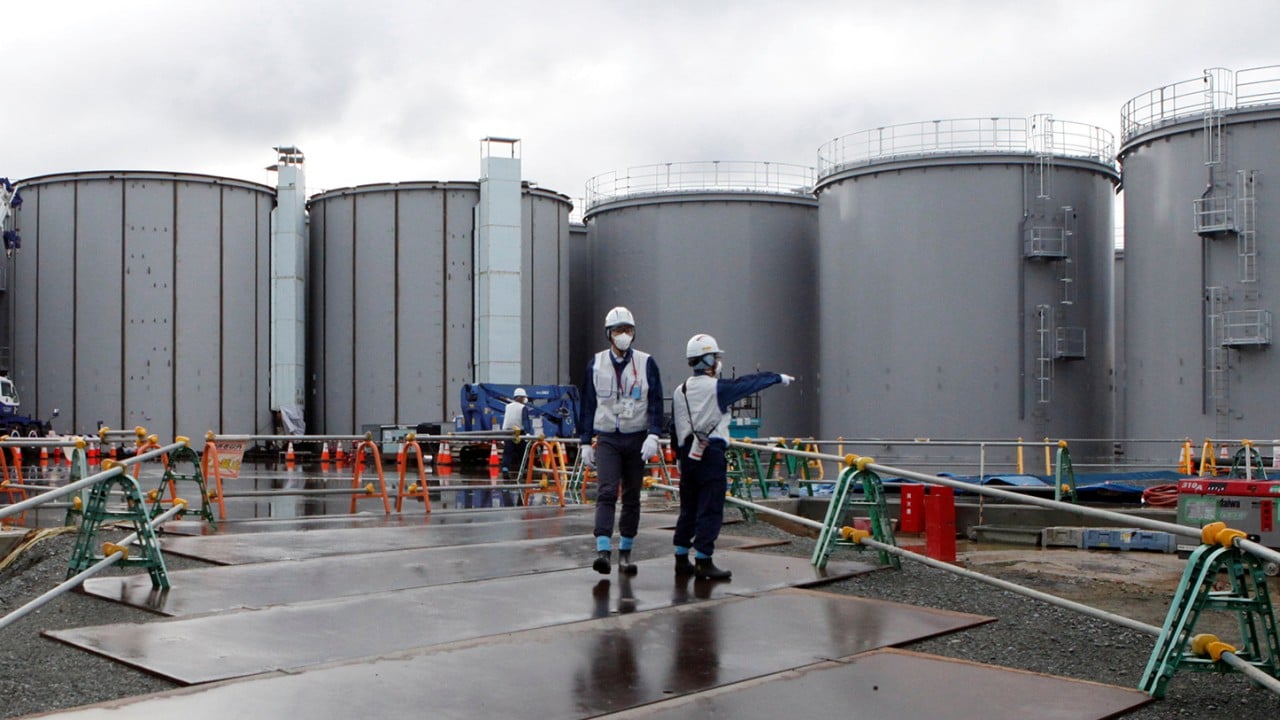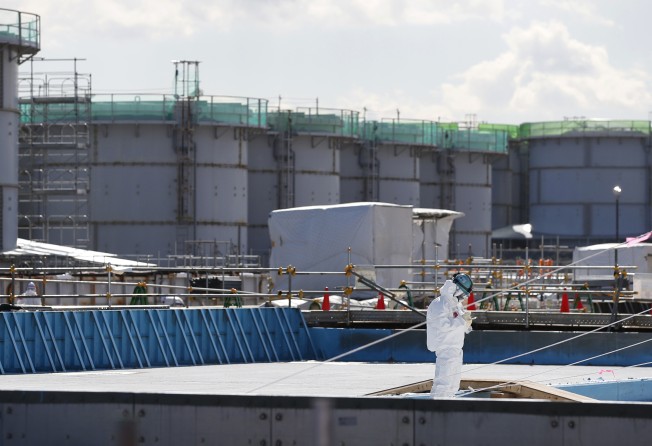
01:54
Radioactive water from Japan’s devastated Fukushima plant may be released into Pacific Ocean

China has raised “deep concerns” with Japan over its planned disposal of treated radioactive water from the damaged Fukushima nuclear plant into the ocean.
Foreign ministry spokesman Zhao Lijian told reporters on Monday that Beijing had through diplomatic channels asked the Japanese government to “adopt a responsible attitude”, noting the environmental and safety impact of the radioactive material that leaked from the Fukushima Daiichi power plant after the devastating 2011 nuclear accident there.
“The Japanese side often asks other countries to fulfil their international responsibilities, and right now, the international society is looking at Japan – so Japan cannot turn a blind eye or turn a deaf ear,” he said. “This issue is very significant, so Japan needs to be responsible to the international public interests, which is also being responsible to the Japanese people’s interests.”
Japanese ministers are expected to meet on Tuesday to formally decide, after years of discussion, to gradually release the radioactive water stored at the Fukushima nuclear plant into the Pacific Ocean, local media reported. While the water that has been used to cool melted fuel in the nuclear reactors is treated, the process cannot remove radioactive tritium – a by-product of nuclear reactors – and the planned disposal has raised concerns from Japan’s fishing industry and consumers, as well as from China and South Korea.
Zhao said on Friday that he hoped Japan would conduct a “thorough assessment” of the treatment process for the tritium-contaminated waste water, and “disclose relevant information in a voluntary, timely, strict, accurate, open and transparent manner, and make prudent decisions after full consultation with neighbouring countries”.
South Korea’s foreign ministry has also said it wants Japan to to be transparent about how it handles the contaminated water.
Japanese Prime Minister Yoshihide Suga has said the country needs to decide on the disposal of the water, as the storage tanks at the Fukushima plant are expected to be full by the summer of 2022. The plant’s operator, Tokyo Electric Power Company Holdings, will also need two years of preparation before it can release the contaminated water, according to Japanese media.
A powerful 9.0 earthquake and tsunami damaged the Fukushima plant in March 2011, the most serious nuclear accident since the Chernobyl disaster in 1986.
Japanese officials have said they were considering various disposal methods for the contaminated water, noting that discharging it into the sea was more realistic while releasing it through water vapour was more difficult. But the issue has been highly controversial, with vocal opposition to its disposal into the ocean by Japanese fishermen, who fear the impact from consumers shunning Japanese seafood over safety concerns.
Environmental non-profit Greenpeace said in October that all of the radioactive carbon in the Fukushima water tanks would be discharged into the Pacific Ocean if the disposal was carried out as planned, which could remain in the environment for thousands of years and had the “potential to damage human DNA”.